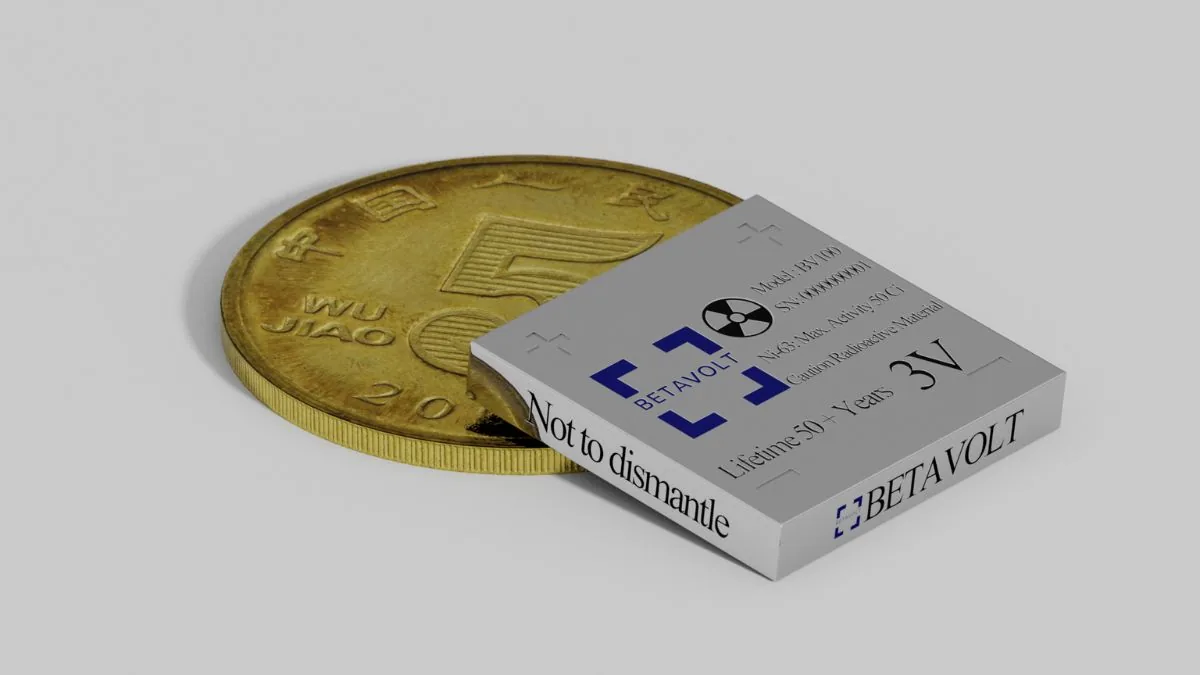China Unveils a 50-Year Nuclear Battery
Mohammed Owais
Date: January 17, 2024
China Unveils a 50-Year Nuclear Battery: Powering the Future or Sci-Fi Fantasy?
Hold onto your charging cables, the future of energy may have just gotten a major jolt. A Chinese company, Beijing Betavolt New Energy Technology Co Ltd, has unveiled a revolutionary nuclear battery boasting a lifespan of a staggering 50 years. Dubbed the BV100, this coin-sized powerhouse promises to power devices for decades without needing a recharge, potentially changing the game for industries ranging from aerospace to medicine.

Harnessing the Atom:
The BV100 taps into the power of the atom, utilizing radioisotope thermoelectric generators (RTGs). RTGs convert the heat generated by radioactive decay of isotopes like nickel-63 into electricity, a technology currently powering spacecraft and remote monitoring devices. Betavolt's innovation lies in miniaturizing and optimizing RTGs for broader applications.
Beyond Phones: A Universe of Possibilities:
While powering a smartphone for 50 years might seem fantastical, the BV100's potential extends far beyond consumer electronics. Here are some exciting possibilities:
- Space Exploration: Powering satellites and deep-space probes for extended missions, unlocking deeper secrets of the cosmos.
- The Internet of Things (IoT): Long-lasting power for remote sensors and monitoring devices in harsh environments, enabling better environmental monitoring and infrastructure management.
- Medical Implants: Pacemakers and other implants could benefit from reliable, long-term power sources, improving patient quality of life.
- Environmental Monitoring: Powering sensors in remote areas for long-term data collection, aiding in climate change studies and conservation efforts.
The Not-So-Bright Side:
Nuclear technology, despite its potential, comes with inherent challenges:
- Radioactivity: While Betavolt claims minimal radiation emission, safe disposal and potential leaks remain concerns.
- Cost: Initial production costs are likely high, limiting broad application in the near future.
- Regulation: Stringent regulations surrounding nuclear materials could hinder widespread adoption.
A Promising Future, But Challenges Remain:
The BV100 marks a significant technological leap, but there's still work to be done. Further research, testing, and regulatory approvals are crucial before this technology can revolutionize various industries. While phone users might have to wait a while for nuclear-powered charging, the BV100's potential in demanding fields is undeniable. This innovation is a glimpse into a future where long-lasting, reliable power could unlock possibilities we can only dream of, but the path forward requires careful consideration of both the potential and the challenges.
What do you think? Is the BV100 a game-changer, or are there too many hurdles to overcome? Share your thoughts in the comments below!